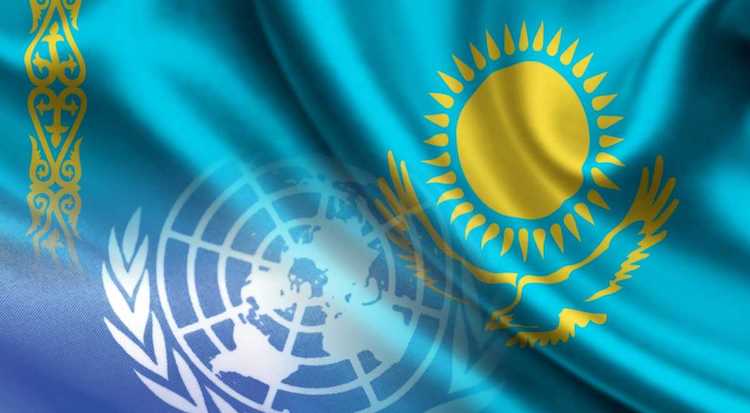By Ramesh Jaura
BERLIN | UNITED NATIONS (IDN) – When Kazakhstan joined the 15-nation United Nations Security Council (UNSC) on January 1, 2017 as a non-permanent member for two years, President Nursultan Nazarbayev pledged “adapting the . . .Council and the entire UN system to the threats and challenges of the 21st century.”
“We will seek to strengthen the understanding of Security Council members on the importance of creating a renewed model of international relations that accurately reflects the realities of the 21st century and shapes a collective responsibility for meeting global and regional challenges,” President Nazarbayev declared.
Now that the Central Asian republic has for the first time in its history assumed the UNSC presidency for January, the focus of international attention is on how Kazakhstan would avail of this unique opportunity for “creating a renewed model of international relations.”
The presidency of the UNSC has a significant international status. Under the Charter, the Security Council has primary responsibility for the maintenance of international peace and security. All Member States are obligated to comply with Council decisions.
The Security Council takes the lead in determining the existence of a threat to the peace or act of aggression. It calls upon the parties to a dispute to settle it by peaceful means and recommends methods of adjustment or terms of settlement. In some cases, the Security Council can resort to imposing sanctions or even authorize the use of force to maintain or restore international peace and security.
Though a non-permanent member for two years, Kazakhstan has been actively involved in the Council’s deliberations in 2017 – also as chair of three crucial Sanctions Committees: ISIL (Da’esh) and Al- Qaida; the Taliban; and Somalia and Eritrea.
As President of the UNSC, head of the delegation of Kazakhstan to the UN – its Permanent Representative, the Kazakh Foreign Minister or President – will be responsible for calling the Council meetings, approving the provisional agenda (proposed by the Secretary-General), presiding at its meetings, and overseeing any crisis.
The Kazakh presidency will issue both Presidential Statements (subject to consensus among Council members) and notes, which are used to make declarations of intent that the full Security Council can then pursue. The President will also speak to the press on behalf of the Security Council.
The Security Council’s representatives of 15 countries are expected to have reviewed the programme of Kazakhstan’s presidency for the month ahead on January 2.
UNSC has five permanent members (P5): China, France, Russian Federation, the United Kingdom, and the United States. The 10 non-permanent members in 2018 are: Bolivia, Côte d’Ivoire, Equatorial Guinea, Ethiopia, Kazakhstan, Kuwait, the Netherlands, Peru, Poland, and Sweden.
According to informed sources, the Kazakh presidency also plans to hold briefings on the Council’s programme of work for UN member states that are not members of the Security Council, as well as for the media and non-governmental organizations (NGOs).
In response to a proposal by Kazakhstan, the UNSC will for the first time hold an official ceremony where the flags of Côte d’Ivoire, Equatorial Guinea, Kuwait, the Netherlands, Peru and Poland will be flown to honour their assuming the responsibilities as new non-permanent members of the Council for the next two years.
The UNSC thematic debates entitled ‘WMD Non-proliferation: Confidence-building Measures,’ chaired by President Nazarbayev, are also planned to take place on January 18.
UN Secretary-General António Guterres as well as the Chair of the Governing Board of the eminent Stockholm International Peace Research Institute (SIPRI), Ambassador Jan Eliasson, have been invited to address the debates. Eliasson was Deputy Secretary-General of the United Nations from July 2012 to December 2016 and Sweden’s Minister for Foreign Affairs in 2006.
Achieving a world free of nuclear weapons, and eliminating the threat of a global war and settling local conflicts are among priorities of the Kazakh UNSC presidency.
The UNSC will hold a ministerial-level debate on the threats to international peace and security on January 19 focusing on ‘Building a Regional Partnership in Afghanistan and Central Asia as a Model to Link Security and Development.’ The Foreign ministers of Central Asian countries and Afghanistan as well as the heads of foreign policy establishments of the UNSC member states, will participate.
The UNSC’s quarterly open debate will be organised on January 25 to discuss “the situation in the Middle East, including the Palestinian question,” which will focus on the Israeli-Palestinian conflict. Permanent representatives of UN member states will join.
In addition, as every year, the Council under Kazakh presidency in January will host open and closed-door discussions on situations in conflict-ridden countries such as Syria, Libya, the Democratic Republic of the Congo, the Central African Republic, the region of Darfur, West Africa and Sahel, South Sudan, Mali, Somalia, Cyprus and Colombia. These are expected to bring forth several important Security Council resolutions and presidential statements. [IDN-InDepthNews – 01 January 2018]
Photo credit: The Astana Times
IDN is flagship agency of the International Press Syndicate.
facebook.com/IDN.GoingDeeper – twitter.com/InDepthNews

